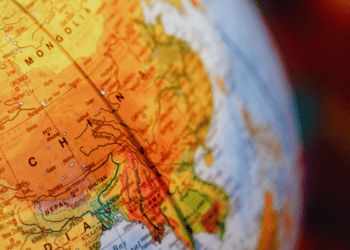On November 19, 2011, MLI Managing Director Brian Lee Crowley’s latest column for the Ottawa Citizen was published. In this column, he discussed Washington’s plan to delay their decision on the Keystone XL pipeline. He said, “But the decision to punt the Keystone decision until after the 2012 election was not based on the merits of the proposal, nor on a reasoned assessment of America’s interests. Instead the administration kowtowed to a coalition of NIMBYists and green activists whose arguments were embarrassingly thin.”
The column (copied below) also appeared in the November 20th edition of RealClearPolitics, an online news source covering U.S. politics.
Pipeline decision will weaken Obama
By Brian Lee Crowley, Ottawa Citizen, November 19, 2011
H.L. Mencken, I think it was, who uttered the immortal phrase “Nobody ever went broke underestimating the taste of the American public.”
No one is a greater admirer of the dynamic and generous society that is America, and when I consider all the nations we could have had living next door I often think we won the neighbourhood lotto.
But for some reason Mencken’s phrase kept echoing in my head when I heard the news about Washington’s plan to delay their decision on the Keystone XL pipeline.
Folly is too kind a word for this decision. It is the crassest pandering to a tiny minority of Americans whose demands run demonstrably contrary to U.S. interests. And even that electoral calculation is misconceived, for it will weaken, not strengthen, Barack Obama.
The background: the Alberta oilsands must have outlets to markets, chiefly in the U.S. The most efficient way is a new pipeline running through the American heartland to the Gulf of Mexico.
There on the Gulf Coast is a concentration of refineries with the capacity to refine oilsands bitumen, something few refineries are able to do.
Everyone wins. New oilsands extraction and upgrading capacity can continue, fuelling one of the greatest industrial projects Canada has ever seen. Scores of billions of dollars will be invested in this massive resource if market access can be ensured.
There is no prospect of reducing Americans’ consumption of oil in the short to medium term without a painful and unnecessary decline in their standard of living. Most of the alleged alternatives to oil are simply no real substitute for its unique properties, especially as a transport fuel.
Alternative sources of oil exist, but they tend to come from far less desirable places than Canada – think Saudi Arabia and Venezuela. Those places have lower environmental, human rights, labour and rule of law standards than we do. Less oil from Canada doesn’t mean less consumption, just nasty sources of oil.
Moreover building the pipeline would unleash a torrent of American economic activity, chiefly in the depressed construction industry. Trade unions, one of the constituencies most assiduously courted by President Obama, were vociferous in their support.
And yet all this was not enough to secure what is normally a pro forma approval from Washington. The United States is covered in pipelines, which historically are a lowcost means of transporting oil, gas and many hazardous chemicals in an extremely safe manner. Bringing a needed commodity to American consumers in an environmentally sound manner while reducing the country’s dependence on oil from despicable regimes and creating thousands of jobs at a time of high unemployment. That sounds like a lot of ticks in the right boxes.
But the decision to punt the Keystone decision until after the 2012 election was not based on the merits of the proposal, nor on a reasoned assessment of America’s interests. Instead the administration kowtowed to a coalition of NIMBYists and green activists whose arguments were embarrassingly thin.
Take the concern of some Nebraskans that the pipeline would cross the Ogallala aquifer, one of the chief sources of water in a number of the heartland states. Clearly the health of the aquifer is a matter of vital interest for many Americans, and they are perfectly entitled to question the project proponents closely about the danger of leaks.
But the answers should have been more than satisfactory for a state whose entire supply of oil and gas arrives essentially by pipeline. Anyone looking at a map showing the number of pipelines already transecting the territory covering the aquifer would have to conclude that something terrible had happened to make people feel that pipelines had suddenly become untrustworthy.
But other than a couple of entirely minor spills in recent years that represent an infinitesimal fraction of the oil transported safely by pipeline in the U.S., no such incident has occurred. And in any case the pipeline’s proponent has promised unheard of levels of safeguards and construction standards to allay fears of risks that are vanishingly small.
To no avail. The pipeline has suffered the worst fate possible: it became a symbol. To those convinced of an apocalyptic vision of a society hurtling toward environmental Armageddon, XL came to represent the sum of all their fears. Combine that with an environmental movement moving strategically to throttle the oilsands by closing off its access to markets, and you had a political force that made up in passionate intensity what it lacked in either logic or votes. President Barack Obama thinks he has thrown them a bone. Instead what he has done is to give comfort to a Luddite movement that thinks you can make modernity go away by holding your breath until your face turns blue.
The problem is that they may get their wish.
Brian Lee Crowley is the managing director of the Macdonald-Laurier Institute, an independent non-partisan public policy think tank in Ottawa: macdonaldlaurier.ca.




